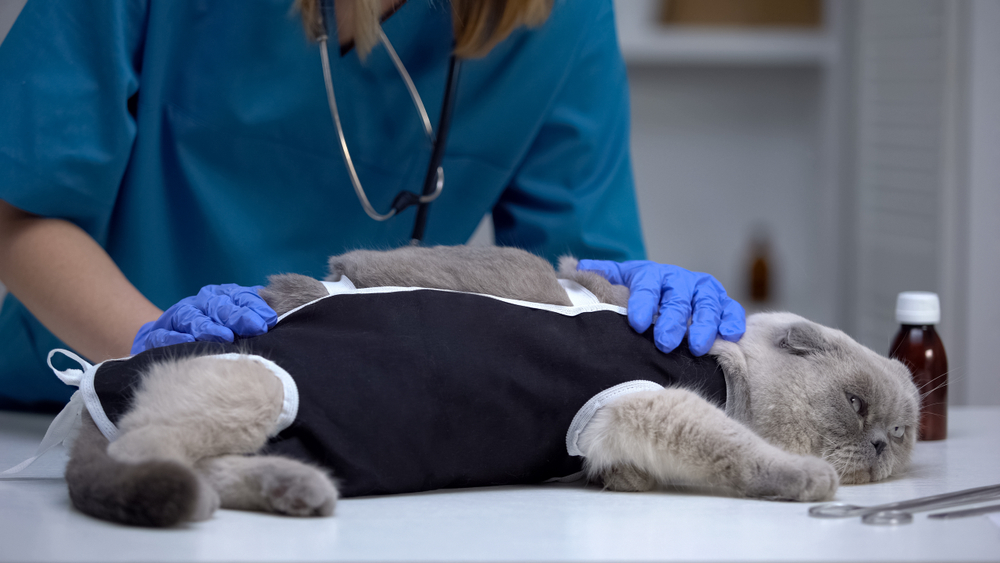
When your beloved pet requires surgical intervention, it's crucial to ensure they are well-prepared to undergo the procedure. Proper preparation not only helps to minimize the risks associated with the surgery but also contributes to a smoother recovery process. As a pet owner, your role in this process is vital, and understanding the steps involved can help you provide the best possible care for your furry friend.
Common Pet Surgeries
Pets may require various types of surgical procedures, depending on their specific health needs. Some of the most common pet surgeries include:
• Perineal Urethrostomy: This surgery is often performed on male cats to address urinary tract blockages, which can be life-threatening if left untreated.
• Bladder Stone Surgery: Pets, particularly dogs and cats, can develop bladder stones that require surgical removal to prevent further complications.
• Foreign Body Surgery: If your pet ingests a foreign object, such as a toy or piece of food, it may require surgical intervention to remove the item and prevent internal damage.
• Entropion Surgery: This procedure is performed to correct a condition where the eyelid rolls inward, causing discomfort and potential eye damage.
• Enucleation: In some cases, the complete removal of an eye (enucleation) may be necessary to address severe eye conditions or injuries.
• Mass Removal Surgery: Pets can develop various types of growths or masses, which may require surgical excision to prevent further health complications.
Understanding the specific procedures involved in these common pet surgeries can help you better prepare your pet and collaborate with your veterinary team.
Pre-Surgical Preparations
Ensuring your pet is in optimal health before surgery is crucial for their safety and well-being. Pre-surgical preparations typically include several key steps. First, it's important to confirm that your pet's vaccinations are up-to-date, as this helps protect them from potential infections during the surgical process. Additionally, your veterinarian may recommend a comprehensive blood test to assess your pet's overall health and detect any underlying conditions that could impact the surgery or recovery.
A thorough physical examination will also be conducted to identify any potential concerns that need to be addressed beforehand. These steps are essential in preparing your pet for surgery, ensuring a smoother procedure and reducing the risk of complications.
Dietary Restrictions and Fasting Before Surgery
Proper dietary management is crucial in the days leading up to your pet's surgery. Your veterinarian will provide specific instructions regarding:
• Dietary Restrictions: Certain foods or treats may need to be avoided in the days leading up to the surgery to prevent complications.
• Fasting Guidelines: Your vet will likely recommend that your pet fasts for a specific period of time before the surgery, typically 8-12 hours, to reduce the risk of complications during the procedure.
Adhering to these dietary guidelines is essential in ensuring your pet's safety and the success of the surgery.
Preparing Your Pet's Environment for Post-Surgery Recovery
Once your pet has undergone the surgical procedure, the focus shifts to ensuring a comfortable and supportive environment for their recovery. This may involve:
• Creating a Quiet, Calm Space: Designate a specific area in your home that is quiet, free from distractions, and easily accessible for your pet to rest and recover.
• Providing Comfortable Bedding: Ensure your pet has a soft, clean, and comfortable sleeping area to promote healing and minimize discomfort.
• Adjusting the Home Environment: Consider any modifications needed to your home, such as limiting access to stairs or slippery surfaces, to make the recovery process as smooth as possible.
By preparing your pet's environment in advance, you can help ease their transition back home and support their healing process.
Ensuring a Smooth and Successful Surgical Experience for Your Pet
Preparing your pet for surgery is a crucial step in ensuring a successful outcome and a smooth recovery process. By understanding the importance of pre-surgical preparations, adhering to dietary and medication guidelines, and creating a supportive home environment, you can play a vital role in your pet's well-being.
At Shore Pet Surgery, we are dedicated to providing personalized care and guidance to ensure your pet's safety and well-being throughout the surgery process. Visit our office in Grasonville, Maryland, or call (410) 827-6464 to learn more about how we can help you prepare your pet for their upcoming surgery.





